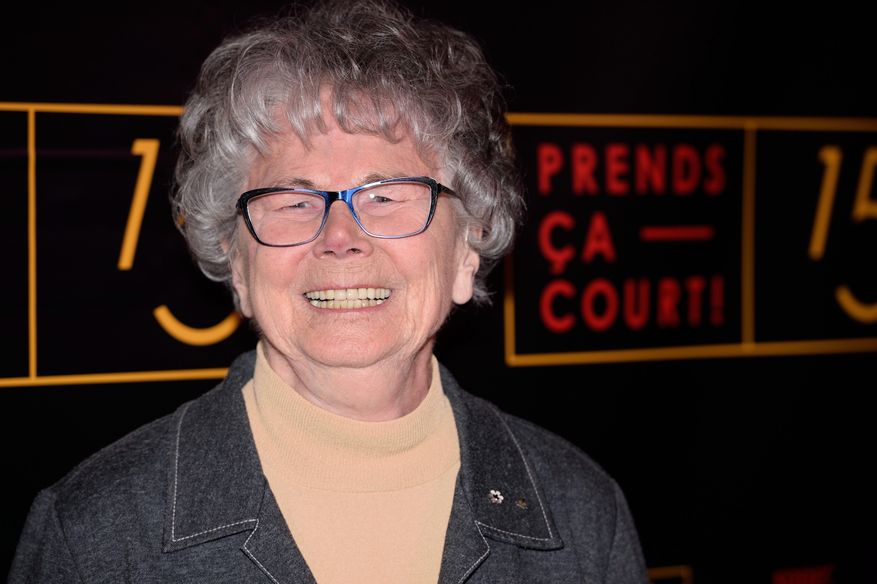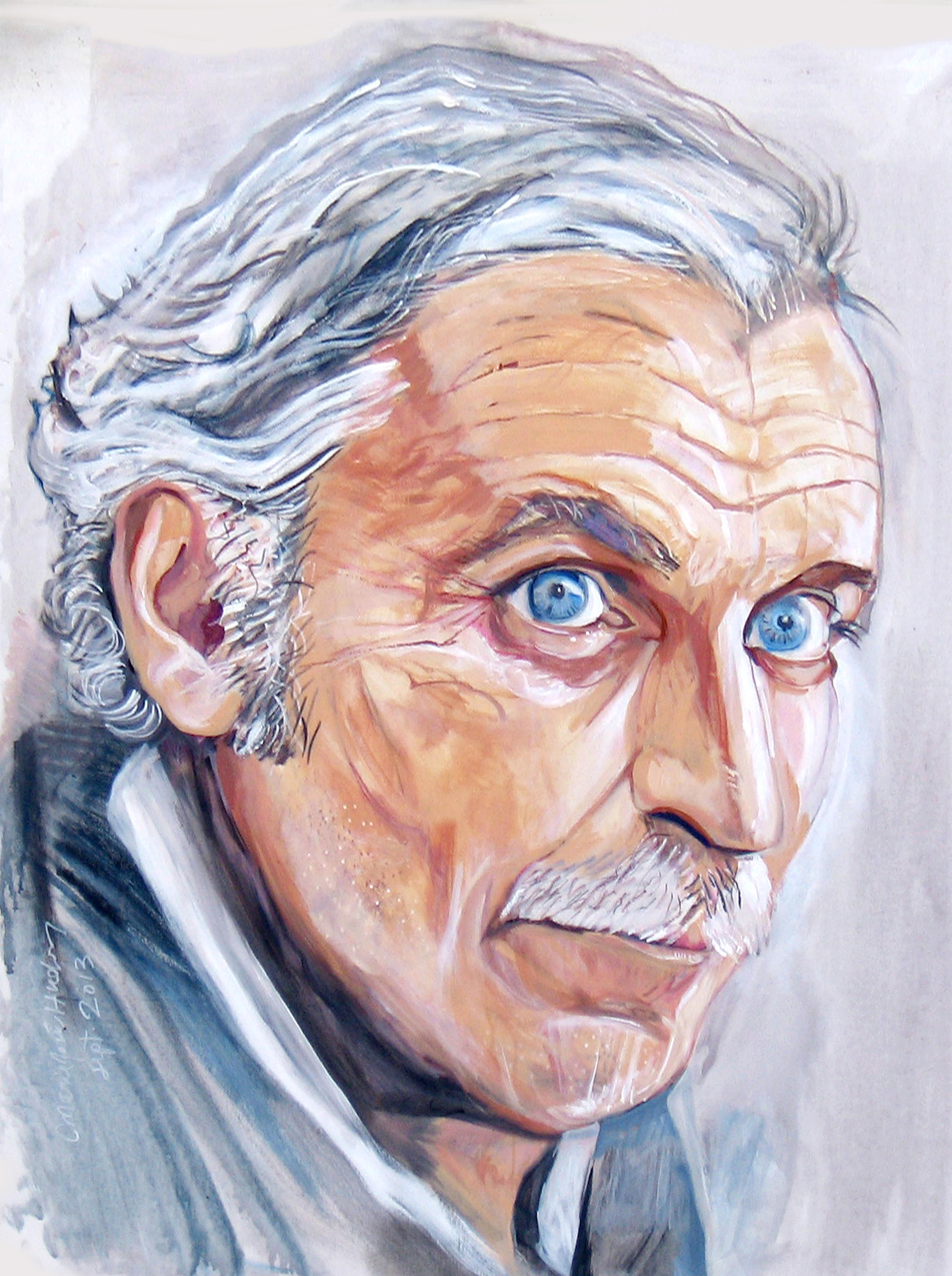Gérard Poirier, OC, O.Q., television and film actor, theatre actor, teacher (born 4 February 1930 in Montreal, Quebec; died 19 December 2021 in Montreal). Poirier played over a hundred different roles over 60 years. He stood out for his excellent enunciation, impeccable French, elegance and for the accuracy of his portrayals. He was also a spokesperson for the Office québécois de la langue française.
Early Career
In 1952, Gérard Poirier graduated from the Lettres et philosophie program at the Collège André-Grasset. He received a Bachelor of Education from the École normale and taught at the Collège Saint-Denis. During this time he founded an amateur theatre troupe, the Compagnie des Sept. In 1955, he quit teaching because he felt restricted by the rigid schedule imposed by the profession. He decided to embark exclusively on an acting career. Lucille Papineau, a colleague he had met in the Compagnie des Sept, recommended him for his first auditions at Radio-Canada. From his very first audition he made an impression, winning his first contracts for radio plays and television soap operas.
Poirier took part in the growth of the young Théâtre du Rideau Vert, where he collaborated on around 50 productions. He quickly became known for the great roles of classical drama. It was not until 1965 that he played a role in the Canadian play, Une maison…un jour by Françoise Loranger. Poirier was also active on the boards of other theatres in the city, including Théâtre du Nouveau Monde (TNM) and the Théâtre Jean-Duceppe. (See Jean Duceppe.) For Lorraine Pintal, former TNM director, Poirier is associated with the classics such as Goldoni, Molière, Shakespeare.
At the end of the 1960s, Poirier was surprised by the emergence of the new Quebec theatre, which used the popular language (joual) in its creations. At that time, Quebec playwrights were gradually incorporating the language spoken by the people into their stage work. Yet the language had long been rejected by the intellectual elite as a symptom of cultural decadence. As for the theatre, it had always expressed itself in polished French, a hybrid between the international French and French tinged with Canadianisms. This way of expressing oneself differed from what was heard daily in Quebec. Later, in 2002, Poirier explained this trend in an interview with the daily Le Devoir:
We wanted to look like the great actors we admired: François Rozet, Marthe Thiéry, and so on. In fact, we only performed French repertoire. Around 1970, the joual language took over, and everything we'd done up to that point was no longer accepted; we were accused of being colonized.
In addition to his theatre career, Poirier devoted several years to teaching drama to students at the Conservatoire de musique et d’art dramatique du Québec. It was through his interaction with these young people that he came to understand the cultural changes taking place at the time.
Television
For more than 60 years, Gérard Poirier held a special place in Quebec television. He played the following roles in turn: Dubois in Radisson (1957–58 ); Marcel Latour in La pension Velder (1957–61); Ovide Fontaine in Symphorien (1970–77); Manuel Dutilleux in Le clan Beaulieu (1978–82); Cyprien Fournier in Le Temps d’une paix (1980–86); Tancrède Rousseau in Le Parc des braves (1984–88); Joseph-Napoléon Drapeau in Montréal ville ouverte (1992); Doctor Philippe Bachand in Jamais deux sans toi II (1990–92) and Les héritiers Duval (1995–96); André Langlois in Mon meilleur ennemi (2001–03); and Mathias Fréchette in L’Auberge du chien noir (2003–17).
Marie Tifo, his fellow actress in the drama series Le Parc des Braves, spoke of the Poirier’s influence and importance for subsequent generations. According to Tifo: “Gérard was royalty. […] Acting with him was always a precious moment. I’ll keep it in my heart forever.” For Tifo, Poirier has had a “huge impact on a whole generation of actors.”
Cinema
Gérard Poirier often said that he would have liked to receive more offers for the big screen. In 1970, he made his debut in Le Soleil des autres, directed by Jean Faucher. He also played Paul in Les Beaux Dimanches (1974), Prime Minister Chevrier in Panique (1977), Priest Folbêche in the film adaptation of Gilles Carle’s novel Les Plouffe de Gilles Carle (1981) and Jules, Florence’s father, in the comedy Nuit de noces by Émile Gaudreault (2001).
Race to the Oscars
In 2011, Gérard Poirier was an actor on a voluntary basis in the short film Henry, directed by Yan England. He played Henry, the main character, inspired by the life of Maurice England ― the filmmaker’s maternal grandfather who died after a long battle with Alzheimer’s disease.
At the 85th Academy Awards in 2013, Henry was one of five films shortlisted for the Best Dramatic Short Film prize. According to Poirier, the judges were impressed by the film's technical qualities, especially its use of light and shadow. In the end, Shawn Christensen's Curfew took the prestigious award.
This was a prophetic role for Poirier, who died of Alzheimer's disease on 19 December 2021.

 Share on Facebook
Share on Facebook Share on X
Share on X Share by Email
Share by Email Share on Google Classroom
Share on Google Classroom


